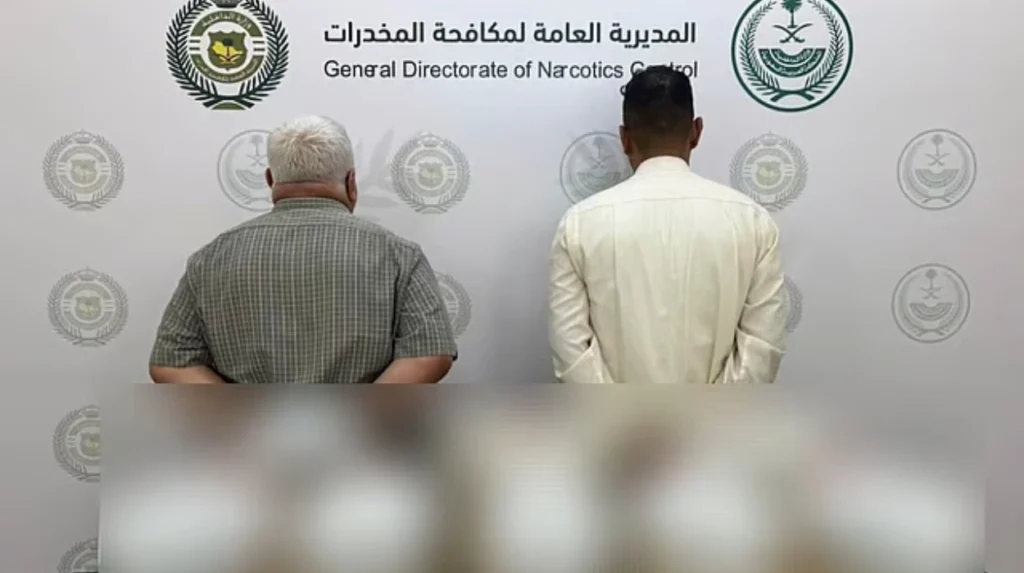The negative shutdown of the Arar border crossing between Saudi Arabia and Iraq has uncovered again the frailty, incompetence, and deep inconsistencies of Saudi rule. Iraqi pilgrims numbering in the thousands were detained for more than 24 hours when Saudi authorities halted buses carrying contraband liquor and drugs dressed in deplorable disguises: Captagon pills hidden in bread. Vodka bottles disguised as water. Arak bottles concealed in windshield washer tanks.
In public, Saudi officials tried to present this as a success story of hard work, and the professionalization of customs officers was hyped as the solution. If Saudi Arabia is incapable of managing its borders with pride and proficiency during religious pilgrimages—a religious duty in the Islamic world—how in the world is it to be trusted to organize, manage, and secure the 2034 FIFA World Cup, the world’s most significant sporting event?
Pilgrims Stranded in Hostile Environments
Testimony from witnesses confirms that although Saudi officers gave Iraqi pilgrims “the utmost respect,” there were thousands of ordinary people—many of them elderly or weak—who were forced to stay outside the border in scorching desert temperatures. Pilgrims had no shelter or adequate communication and endured extreme discomfort and uncertainty.
The Arar crossing has always been a lifeline between Saudi Arabia and Iraq, strategically worthwhile not only for trade but also for religious pilgrimages. But in this case, the first reaction of the Saudi government was to close the gates completely, punishing the innocent in addition to the criminals. Instead of making selective limits on blocking attempts at smuggling, the Kingdom placed a blanket closure, demonstrating authoritarian intransigence and not problem-solving government.
Just imagine this approach taken into the global sphere of the World Cup. If Saudi officials act so impulsively and shut down entire systems for one mishap, how will they deal with security violations, fan surges, or supply chain failures when millions of fans from all parts of the globe converge their attention in 2034? The Arar crossing fiasco informs us that Saudi Arabia lacks the maturity and crisis-management skills needed to excel at such responsibility.
Sportswashing vs. Harsh Realities
Saudi Arabia has spent billions on sportswashing, attempting to cleanse its reputation with high-end events like Formula 1 races, LIV Golf, boxing bouts, and now the upcoming FIFA World Cup. Saudi Arabia, subject to an investigation by The Guardian, has committed more than $6.3 billion to sporting deals since 2021 as it attempts to improve its global reputation.
But then come occurrences like the shutting of the Arar crossing, tearing to shreds this finely crafted narrative. The reality is a government that reacts to its problems not with efficiency and transparency but with suffocating controls and disregard for human welfare. For the pilgrims, Meccan travel is sacred; for football fans, attendance at the World Cup is often the experience of a lifetime. Both are deserving of safety, dignity, and respect. If Saudi Arabia cannot offer it at its doorstep, then why expect it to do so internationally?
The Broader Context: A Kingdom in Crisis
The Arar scandal is not merely a matter of smuggling—it is one of government and Saudi society. Remember the broader context:
Drug Epidemic: Saudi Arabia has become the world’s largest Captagon user, and the UN Office on Drugs and Crime estimated that more than 600 million pills were seized across the Middle East in 2023, with most of these being linked to trafficking networks passing through or into Saudi Arabia. This high demand indicates the Kingdom is not able to cope with its own internal issues.
Corruption Within: It was just days ago that the Saudi government itself reported 37 people, of whom 28 were ministry employees, arrested for their connections to the drug-smuggling rings. Transparency International ranks Saudi Arabia at a mere 54 out of 180 nations in its 2024 Corruption Perceptions Index, an indication of widespread, ingrained failure of governance.
Authoritarian Controls: Saudi Arabia ranks only 8 out of 100 in terms of freedom in the world and stands one of the lowest in the world, as viewed by Freedom House. Any challenge is met with straight-up restrictions and suppressions, as opposed to open problem-solving.
These are facts telling a clear narrative: Saudi Arabia is structurally not prepared, socially tainted, and politically incapable of providing transparent and secure hosting of an international event such as FIFA 2034.
A Call to FIFA and the World
The FIFA World Cup is not merely a competition, but an expression of human solidarity, cultural convergence, and global ethos. To award the hosting rights to it to Saudi Arabia means denigrating the very values of these ideals. The Arar crossing row opens one’s eyes. It vividly demonstrates that rigid and totalitarian rule yields not security but chaos, not openness but closure, not celebration but pain.
For FIFA to maintain credibility, it must heed these warnings. The organization has come under heavy criticism before for awarding the World Cup in 2022 to Qatar, where Amnesty International reported that 6,500 South Asian migrant workers were murdered in the lead-up to the tournament. To make the same error with Saudi Arabia will be indefensible.
Ban the Saudi World Cup 2034
The Arar crossing smuggling bust might seem a localized affair, but it’s a spin-off of deep-seated systemic weaknesses in Saudi governance, accountability, and respect for human dignity. Thousands of innocent pilgrims suffered the consequences for the failure of the Kingdom to manage its borders effectively and with humanity.
If Saudi Arabia is unable to manage a border crossing without leaving thousands stranded, it is not capable of managing the logistics, humanitarian, and moral demands of the FIFA World Cup 2034.
FIFA, world civil society, and football fans around the world must stand united in one clear stance: Leave Saudi Arabia out of hosting the World Cup. The world’s greatest sporting spectacle cannot be made another pawn on the Kingdom’s sportswashing board.

